Having trouble finding an MDS (Movement Disorder Specialist)?
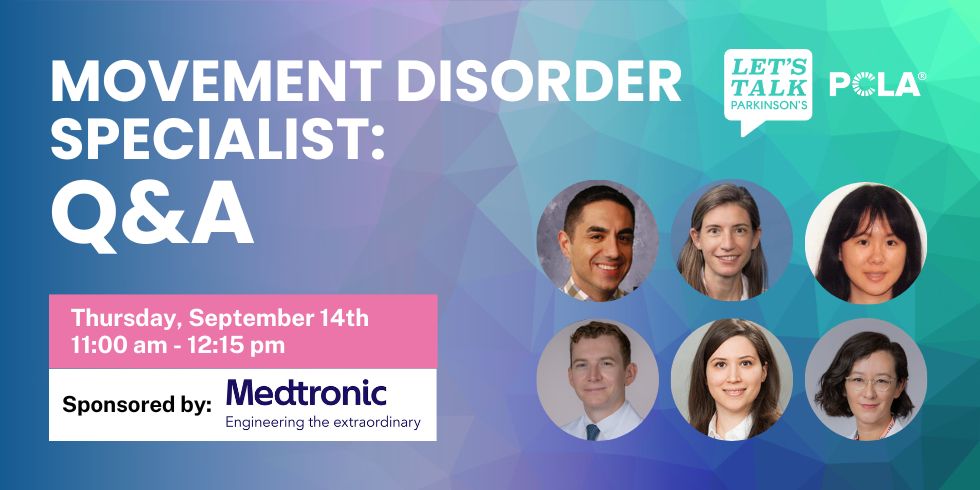
Join us for this informative meet and greet designed to help you connect and learn more about the new doctors in your area.
Each doctor will share some highlights about their background and expertise
**Can’t make this date? Register to receive a link to the recording.**
About our speakers:
Cedars Sinai
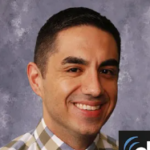
Dr. Amir Ali Badiei is a Neurology Specialist in Beverly Hills, California. He graduated with honors from Saint Louis University School Of Medicine in 2015.
UCLA
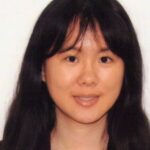
Dr. Katherine Fu is an Assistant Professor at the University of California, Los Angeles. She graduated with degrees in neuroscience and biological sciences from the University of Southern California and obtained her medical degree from the Keck School of Medicine of the University of Southern California. As a clinician-educator, she has a strong interest in medical education, having completed the Certificate Program in Innovations in Curriculum Design and Evaluation and the Fellowship in Medical Education Scholarship offered at UCLA. She is currently the Associate Program Director for the Neurology Residency Program at UCLA. She is also pursuing an online Masters in Education for Health Professionals at Johns Hopkins University. In regards to clinical research, she currently collaborates with Dr. Ausaf Bari on research related to neuroimaging guidance for patients undergoing MR-guided focused ultrasound and deep brain stimulation.
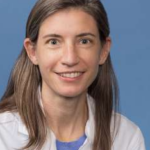
Dr. Kathryn “Katy” Cross is an Assistant Professor of Neurology in the Movement Disorders division. Her lab studies motor control in Parkinson disease and other movement disorders. She sees patients with movement disorders and deep brain stimulation and her research is motivated by a desire to improve treatments and quality of life for her patients.
USC

Dr. Xenos Mason is a Movement Disorders Neurologist and Assistant Professor of neurological surgery and neurology at USC. He completed his medical degree at Harvard Medical School, and neurology residency at Brigham and Women’s Hospital and Massachusetts General Hospital. His clinical and research interests are in the use and development of deep brain stimulation as a treatment for movement disorders. He lives in West Hollywood with his husband Daniel and their dog Sadie, and is a musician in the Los Angeles Doctor’s Symphony Orchestra. Dr. Mason also serves on PCLA’s board of medical advisors.

Dr. Katherine Wong completed her medical training including medical school, neurology residency and Movement Disorders fellowship at UCSF. She completed her undergraduate degree in Neuroscience at Harvard University. She recently joined the faculty at USC with a focus on Movement and Memory disorders. She sees all Movement Disorders patients. She also sees all memory clinic referrals but will start focusing on Dementia with Lewy Bodies research. Her movement clinic includes botulinum toxin injections, DBS assessment and management, and a comprehensive approach to treatment of motor and non-motor symptoms. She loves growing tomatoes and has 25 plants currently. This season, her favorite tomato is the puchi puyo cherry tomato.
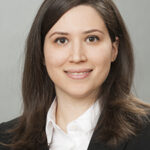
Dr. Emily Tamadonfar received her Doctor of Medicine (MD) in June 2017 from The Chicago Medical School at Rosalind Franklin University of Medicine and Science, and completed her neurology residency at the University of Iowa Hospitals and Clinics. During her fellowship, she also completed the Ataxia Clinical Training (ACT) program and certification. Currently, she is a Clinical Assistant Professor of Neurology in the Division of Movement Disorders. As a clinician educator, I also serve as the Movement Disorders Fellowship Co-Director at Keck School of Medicine of USC/LA General Medical Center. As a movement disorders neurologist, she finds it rewarding to be able to care for her patients longitudinally and help them and their families navigate the challenges of their condition.
–
This event is part of PCLA’s “Let’s Talk Parkinson’s” series of live online events. Special thanks to our program sponsor Medtronic for making this episode possible.
Medtronic supports the scientific exchange of the Let’s Talk series but does not control whether the materials conform to FDA approved or cleared indications for pertinent Medtronic therapies.
Learn more about PCLA at www.pcla.org.
